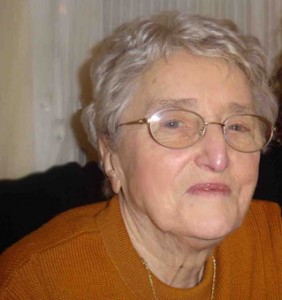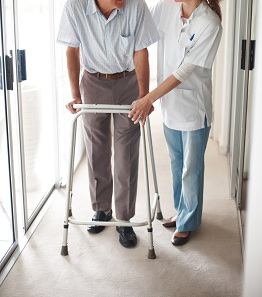London geriatric physiotherapy – Elderly rehabilitation and walk

If you are an Axa or Bupa patient, you cannot book online. Please call our office with your authorisation number.
If you cannot find an appointment that suits you, call us or send us a message: we will do our best to find you a slot.
Some seniors prefer staying at home as long as possible while some other prefer going to nursing and care homes. Whatever your choice is, LHVP physiotherapists will be able to provide you with the most appropriate care as they move anywhere in London to come to you, whether you need help to walk, a mobilisation when you have to stay in bed, a therapy massage or a post operative rehabilitation after a hip or knee replacement for example. As treatments are being held at home, it helps to develop rehabilitation protocols suitable to the place the person lives and also teach seniors efficient and safe transfers and moves.
We offer all the services and rehabilitations a person needs in order to stay independent: walk help, falls prevention, transfer learning, rheumatological and orthopaedic reduction, neurological problems, fracture, respiratory conditions…
We also treat women who suffer from incontinence, prolapse, loss of sexual sensation and pelvic pain due to age or any other causes.
Finaly offer soft exercises and fitness classes tailored to keep joints flexible , muscles toned and a good physical and mental shape.
Our physiotherapy and osteopathy treatments are covered by most health insurances and are Bupa registered & recognised (BUPA Global and BUPA UK), Axa registered & recognised (AXA International, AXA PPP), Cigna registered & recognised and WPA registered & recognised
For domiciliary physiotherapy call : 0207 125 0262
Walking Rehabilitation for Elderly in London

In both cases, the patient develops a Psychomotor Regression Syndrome (PRS). It is a complex term meaning that the systems and mechanisms affected in postural and walking automatisms are impaired. This syndrome is composed of motor symptoms and psychological disorder.
Motor symptoms
Standing
- “Retropulsion” (gravity centre kept backward)
- Posterior instability (tendency to fall backward)
- Both leading to postural compensation (Knees/hips kept flexed and bend forward) and to this traditional posture:
Sitting
- Impairment of sitting posture is less visible but as problematic
- Patients with PRS keep their buttocks forward, shoulders backward and feet far from the seat (image B)
- However, to stand up we need to transfer our gravity centre forward (image A)
- Therefore, standing up is difficult/impossible without exterior help for patients with PRS
Walking
It is difficult for them to
- Initiate the walk (they look ‘frozen’)
- Difficulty to avoid obstacle and to turn
- Gait
- Diminution of the length of the step
- Diminution knees and hips flexion (increase risk tripping)
- Diminution of heel strike
- Increase time spend in bipedal stance (Increase posterior instability)
Neurological signs
- Mainly, alteration/absence of postural adaptation and protective reaction (the person is not able to balance herself and to stand up without falling)
Psychological disorder
Patients with PRS present with
- Anxiety/phobia of verticality (afraid to stand up)
- Loss of self-confidence/self-esteem
- Discouragement associated with a reduction of their activity
This is therefore, a situation where:
- They are afraid to move
- They move less
- They become even less able to move
At London Home Visit Physiotherapy, we have specialists with experience in treating patients with Psychomotor Regression Syndrome. We are able to arrange home visits within London or visits in any home care facility.
When necessary we also organise care and administrative duties with family members.
Our first aim is to break this vicious circle by promoting movement and helping the person to go back to normal activity and even develop new hobbies.
The first step of our approach is as always to understand our patients and their situation. To do so, we use a variety of evidence based tests to evaluate the level of impairment of the walk and different posture. Then, we will develop a treatment plan in accordance with the patient expectations.
For patient with Psychomotor Regression Syndrome the treatment is often composed but not only of:
- Exercise to promote movement and strength
- Postural work to correct the compensation
- Work on the change of position to teach the easy and safe way to stand up, sit down, and lie down.
- Work on the walk and to correct their gait
If you are an Axa or Bupa patient, you cannot book online. Please call our office with your authorisation number.
If you cannot find an appointment that suits you, call us or send us a message: we will do our best to find you a slot.



